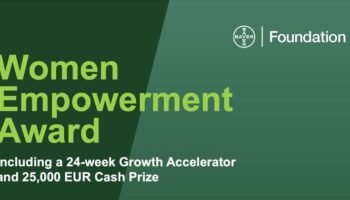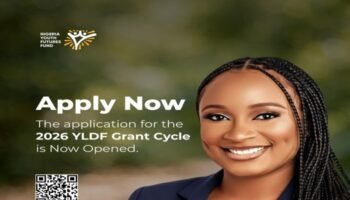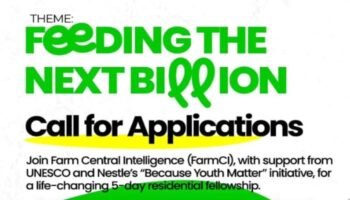Applications are open for PEDL Special ERG call on Climate Change. The Private Enterprise in Low-Income Countries (PEDL) programme invites proposals on projects aimed at understanding the role of firms in addressing climatic and environmental challenges in PEDL-priority countries.
Lower-income countries face a dual crisis of climate and environmental degradation. South Asian and Sub-Saharan African countries are among the most vulnerable to climate change. Among all countries in the world, Bangladesh, Pakistan and India rank as the three countries with the worst air quality.
The private sector is central to addressing both climate and environmental crises. Proposals responding to this call should make clear how the research addresses firms. Projects may examine the role of firms as individual entities or the interaction of firms within markets. PEDL does not focus on agriculture, although they are open to projects exploring firm-farm interactions through input and output markets.
They welcome proposals that investigate the role of the private sector in climate adaptation, as well as what policies and interventions may facilitate climate adaptation by firms. This could include the use of financial technologies, location choice, innovations, management practices, networks, and policies. They also encourage proposals that explore the political economy constraints and the market frictions interfering with the implementation of policies on firms’ adaptation.
The Exploratory Research Grant programme is aimed at seeding new research agendas that might lead to more extensive projects as they develop. PEDL supports this scaling through Major Research Grants (MRGs), and through a Scale-up Grant program that aims to bridge the gap between the initial work of an ERG and a full-scale project. They therefore encourage ambition in the proposals, even if this call only allows for pilots or other initial steps in developing the agenda.
PEDL Special ERG call Focus Area
Energy
The private sector plays a role in developing a reliable electric grid necessary to meet growing demand of firms and households. There is an interaction between investment and regulatory policy, especially as the latter relates to long-term power purchase contracts.
- How can renewables and storage support the development of reliable electricity grids?
- What are the sources of regulatory and investment risk for private sector investment in renewables, and how can these be mitigated?
Industrial Production
Energy use in industrial processes contributes around one-quarter of CO2 emission globally. From a development perspective, the effect of industrial production on air quality is at least as important. Brick kilns alone are estimated to be responsible for as much as 58% of PM2.5 in Dkaka in the dry season.
- What is the role of the innovation and technology adoption is reducing emissions of both PM 2.5 and GHGs?
- How can policy interact with the private sector to achieve results?
- What determines the uptake of energy-saving innovations by private sector firms?
Trade
GHG emissions of producers of exported goods may be thought of as induced by the final consumers of those goods. Tariffs in both producing and consuming markets may skew prices of carbon-intensive and non-intensive goods.
- How do import policies impact production decisions and technology adoption?
- How are climate mitigation demands of consumers in higher-income countries transmitted through buyers to producers in lower-income countries?
Markets for risk
Insurance is an important factor in resilience at the level of the farmer or firm. Insurance may also be necessary to encourage investment in capital-intensive sectors like grid-scale renewables.
- How are the effects of climate change distributed across firms of different sizes, sectros and locations?
- What innovations are required in local insurance markets to mitigate the increased risks arising from climate change?
- In the absence of full insurance markets, what are the adaption strategies of firms in PEDL-focus countries?
Innovation
Innovation will play a major role in the resolution of either of these crises.
What are the constraints that private enterprises face with respect to the creation, adoption, diffusion, and financing of new climate-friendly technologies, be they internal (e.g., management) or external (e.g., finance, market prices) to the firm?
- How amenable are these constraints to policy intervention?
- How far is green tech imported versus produced domestically in PEDL-focus countries?
PEDL Special ERG call Funding Details
- The budget limit for ERGs is £40,000.
- ERG projects typically run for 12 months.
- Please note that contracts should be signed within one month of the outcome notification, which is also the expected start date for the projects.
- ERGs are designed to be contracted directly with individual researchers. The individual researcher will be responsible for receiving, spending and reporting on funds. There should be no institutional involvement. In exceptional circumstances and with significant justification contracts can be drafted with the individual’s institution, but these are non-negotiable and the institution cannot take any overhead fees.
Eligibility Criteria for PEDL Special ERG call
- PEDL priority countries includes all LICs and FCDO-focus LMICs. They are particularly interested in generating research in countries on which less research is currently being conducted. This means that countries with very active research (e.g., India and Indonesia) are lower priority. Proposals for research in these countries will need to justify why the research needs to be carried out there, and how the results are relevant to PEDL priority countries.
- PEDL will consider proposals for research in non-listed LMICs but they should make a clear case for the relevance of the research to policy in LICs, and also justify why the research is only feasible in a non-target country (e.g. because of exceptional data availability). Note that they are currently unable to fund projects located in Myanmar and Palestine.
How to Apply
Click Here to Apply and for more details
Application Deadline: 19 August 2024
Elevate Your Business With Our Expert Services!







